You may not find this terribly rewarding unless you're included here, so this is a good time for casual and random browsers to turn back before they get too caught up in the sweep and majesty of the proceedings and can't let go.
Some views of Interlaken, Switzerland, and of Rosenlaui
Alison and Mark's visit, 3-6 October 2017



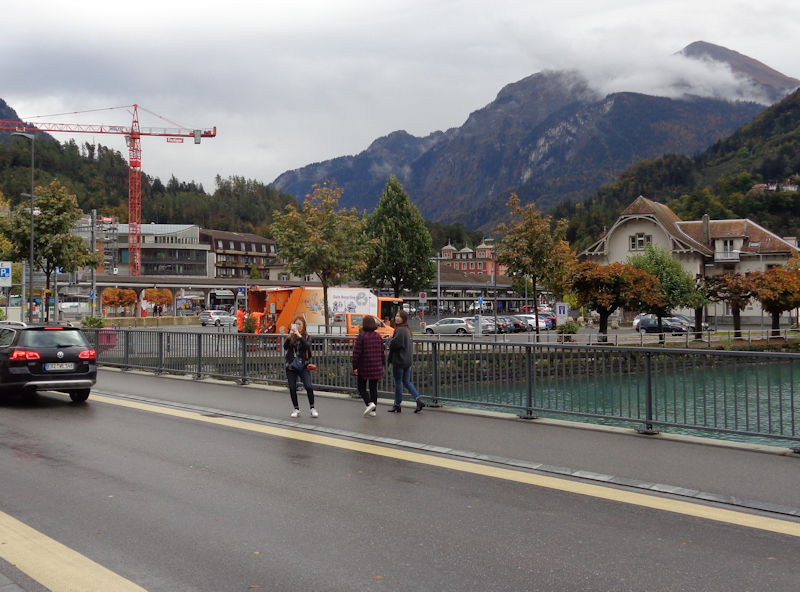
A break in the rain at the rail station Interlaken West, 3 October, awaiting Alison and Mark's train from the Geneva airport
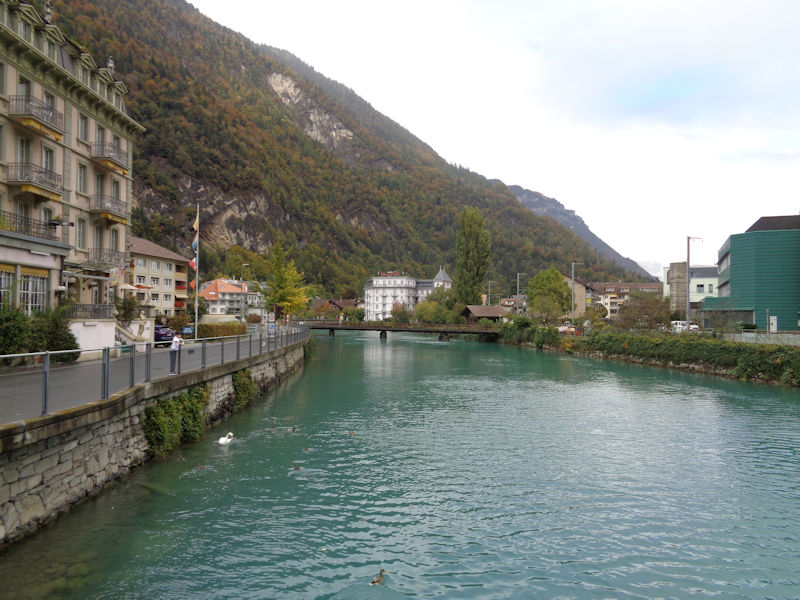
Just time for a brief walk around the old town, Unterseen, before we have to cram way too much luggage into the tiny Volvo and head off into the mountains
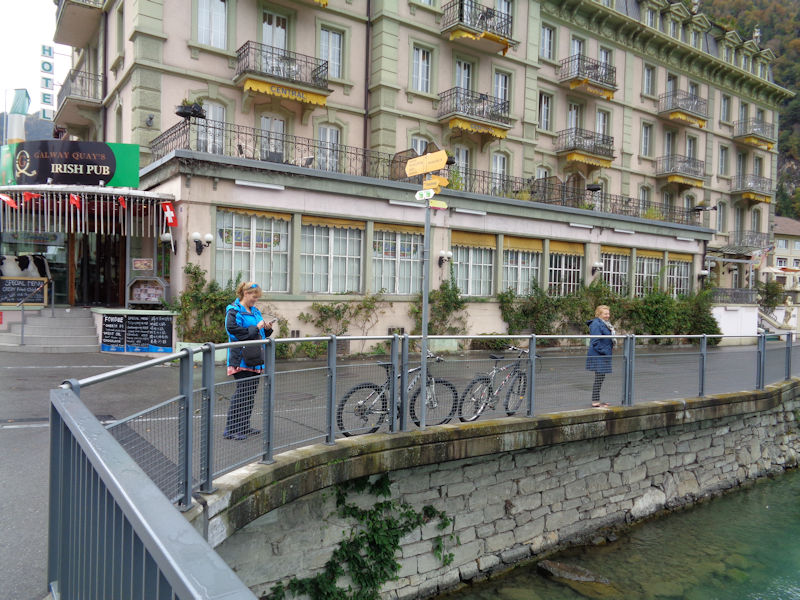
Alison and Kristin and the mighty river Aare (the longest river in Switzerland)
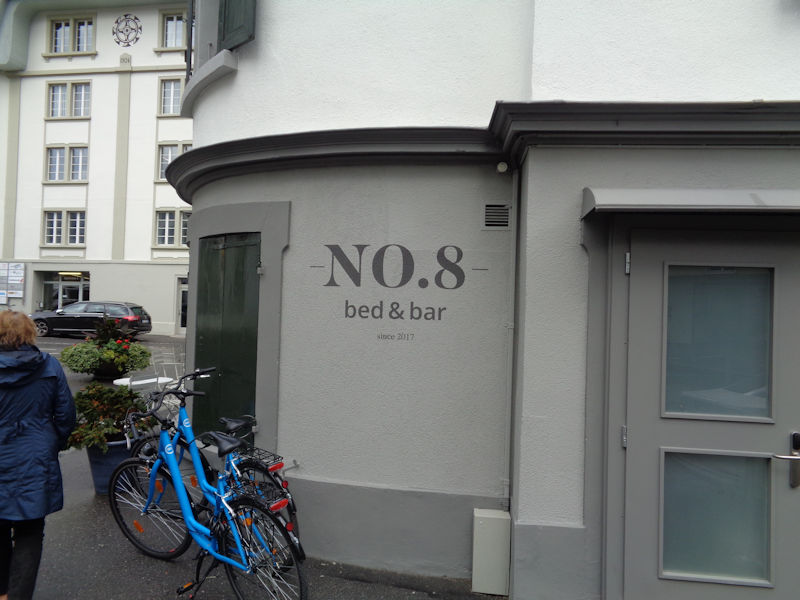
Since way back in 2017
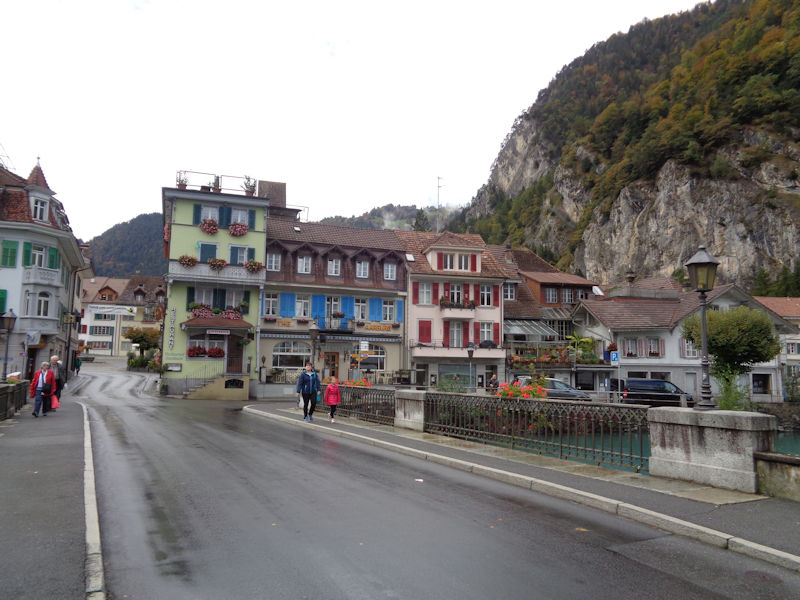
The bridge crossing the Spielmatte island in the Aare to the old neighborhood of Unterseen
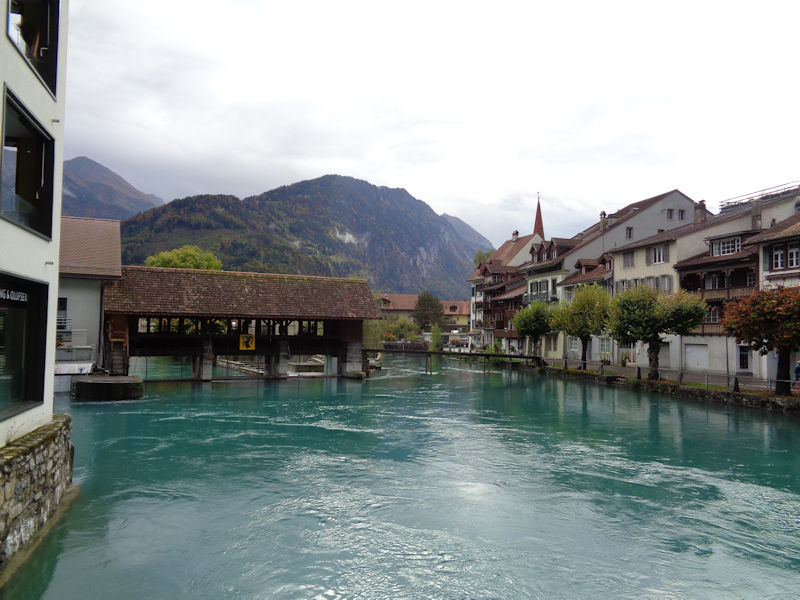
The old mill on the Aare from the Spielmatte bridge. Interlaken, population ca.6,000, grew up from villages on the flat alluvial land between the lakes of Thun and Brienz, clustered around the Augustinian monastery that was founded in 1133.
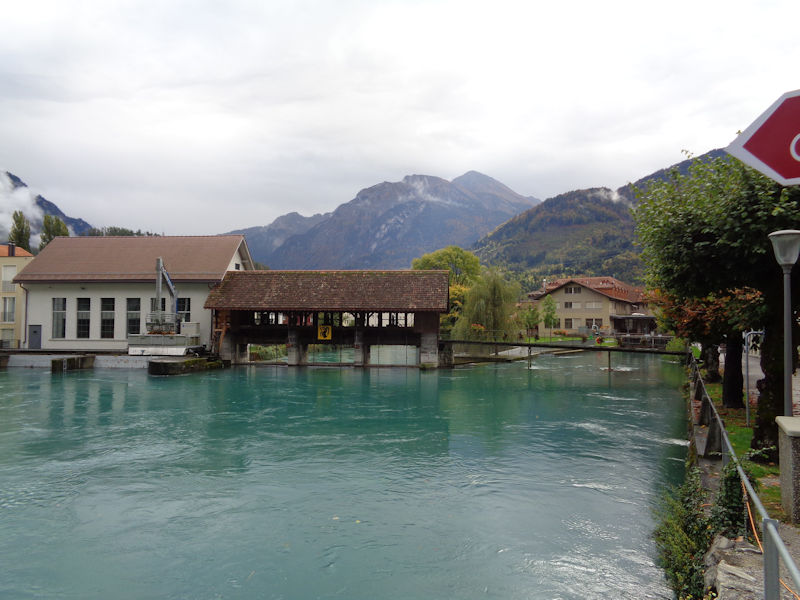
The village of Aarmühle ('mill on the Aare') centered on the monastery's mill established before 1365, and by the late 19th century the villages of Aarmühle, Unterseen, and Matten had incorporated together under the name of Interlaken ('between the lakes'). (The mill seen here, in the place called Stauwehr, has been replaced in function by a power station.)
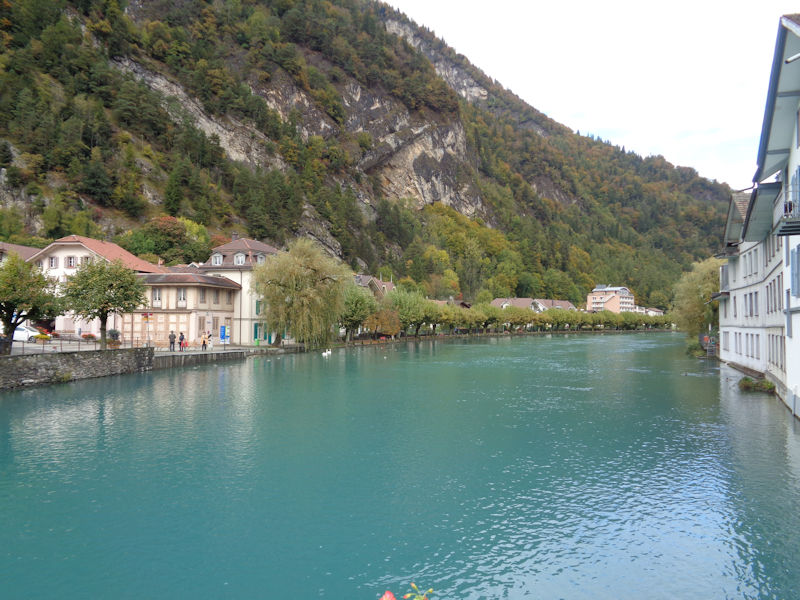
The phenomenal Alpine views, combined with the relative ease of access, contributed to Interlaken's rebranding as a tourist destination in the early 19th century, and spas and often elegant hotels were built around mid-century to accommodate a growing European interest in health cure facilities in luxurious surroundings, and in mountain views.
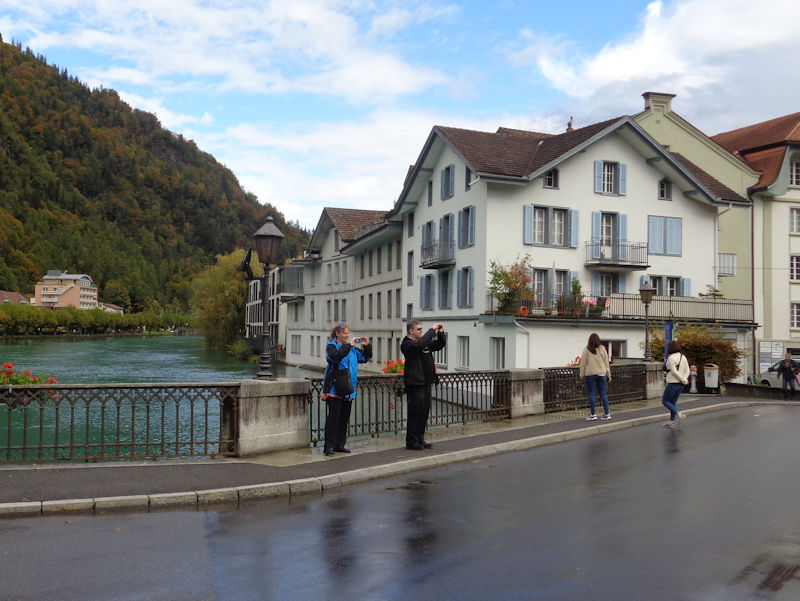
Alison and Mark memorializing their experience on the Aare. The advent of steamships on the two lakes in the 1830s and rail links later in the century solidified Interlaken's reputation both as a vacation/health cure destination and as a tourist hub with easy links to Grindelwald and the Eiger/Jungfrau world, Lucerne and points north, Thun and Bern to the northwest, and to the southwest, Gstaad and the Pays-d'Enhaut near Lake Geneva.

The Unterseen village square, and the Kirche Unterseen, rebuilt in the 19th century but with its original tower dating from 1470. Unterseen itself was founded in 1279 by Rudolf I of Habsburg, 'King of the Romans' [i.e., King of Germany] when he licensed a local baron to build a stronghold here, chiefly to counter the influence of the monastery, which had sprawled out all over the region, and the encroachments of the Bernese.
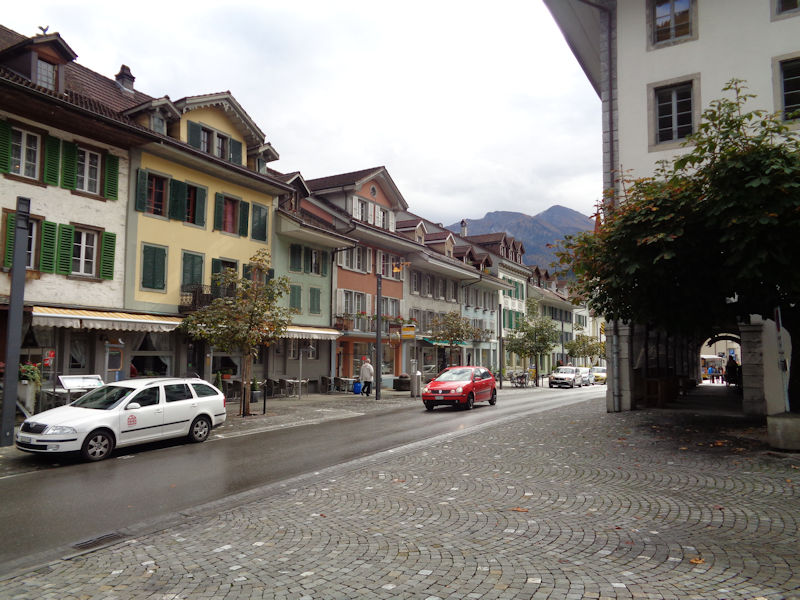
The town was taken over by the city of Bern anyway, from around 1337 but especially after the Battle of Sempach in 1386, and it remained uneasily under the Bernese bailiffs thereafter, with periodic spells of resistance.
.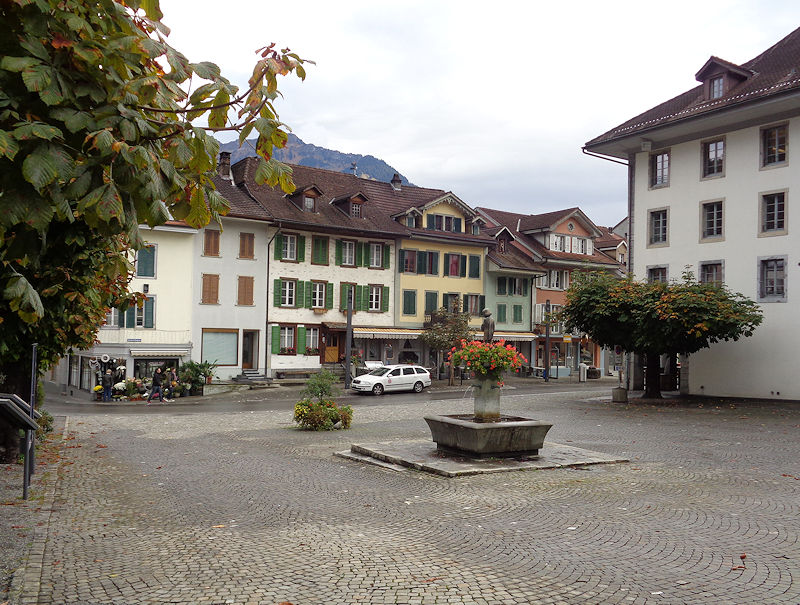
The Marktbrunnen or 'market place fountain'
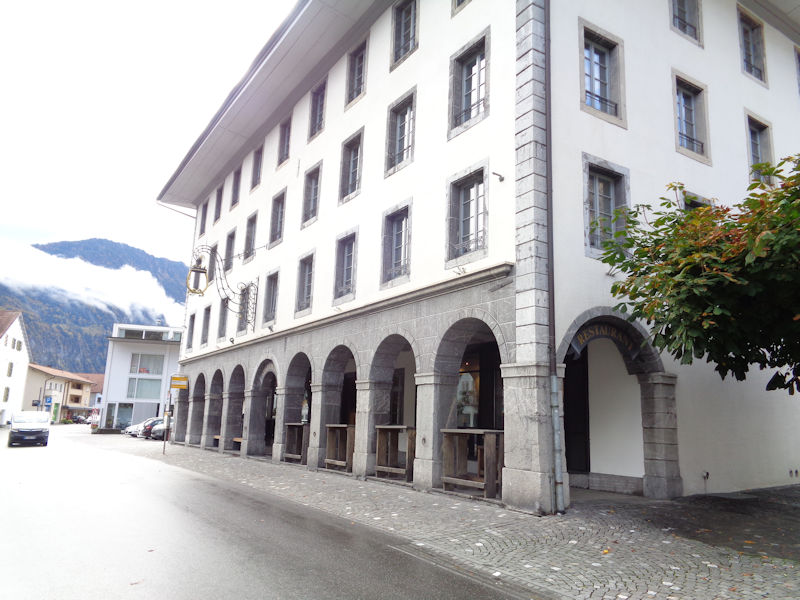
Now called the Stadthaus or town hall, this huge building was built as the 'Kaufhaus' for commercial and trade as well as administrative purposes by Bern following a catastrophic fire that destroyed the town in 1470 -- it served as an inn for travelers as well (Mendelssohn and Goethe slept here! Separately.).
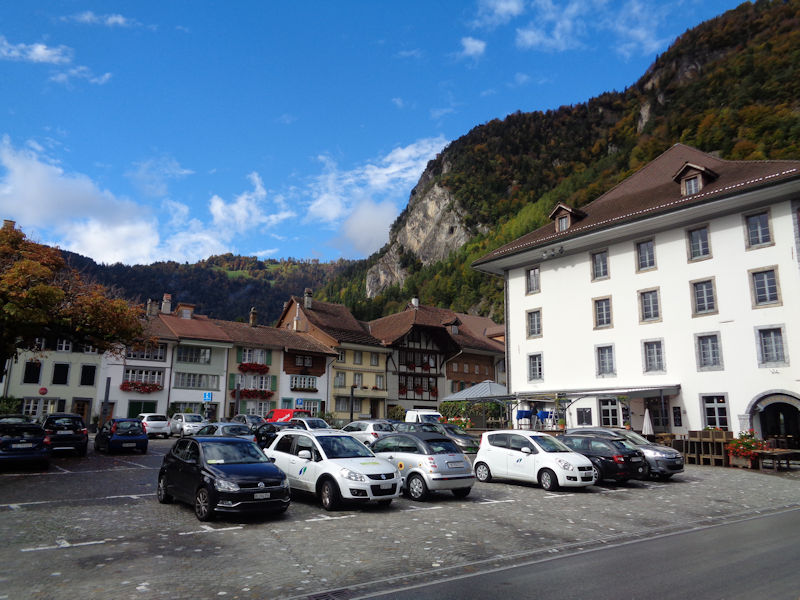
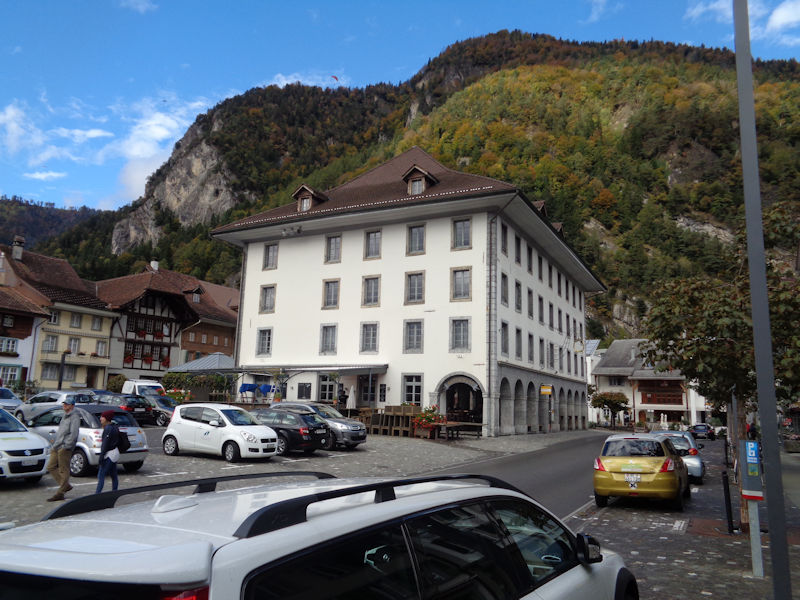
The Stadthaus with five parapenters sailing down from the hills above.
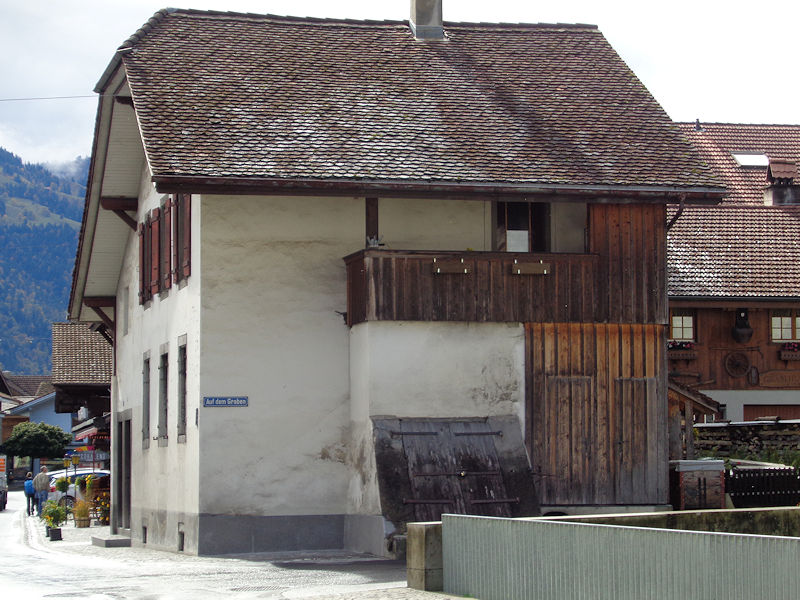
The corner of Auf dem Graben street
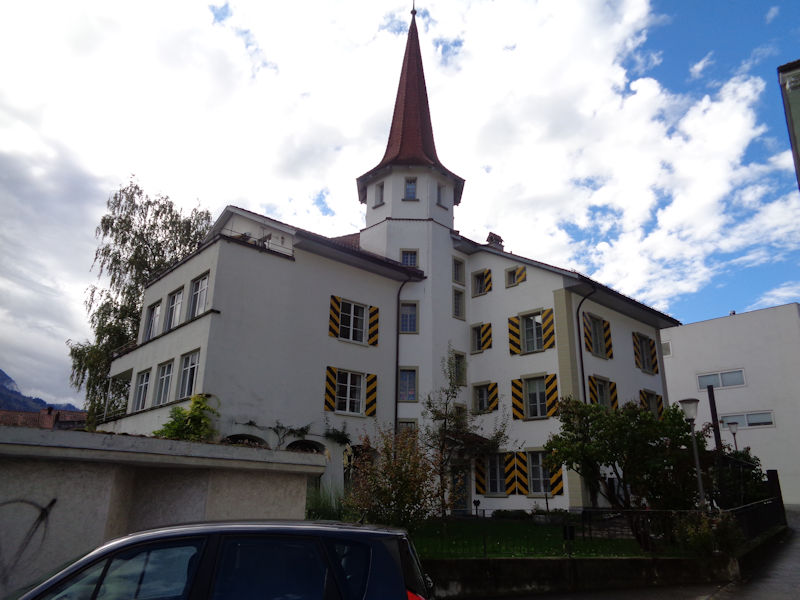
The Schloss or castle of Unterseen, dating from 1656 with later renovations
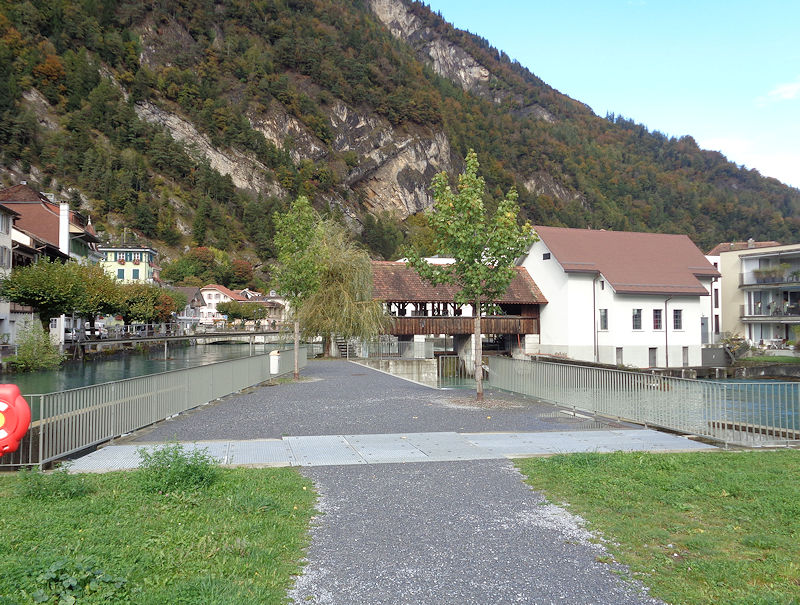
The mill from a smaller island just downstream. This is the end of our brief Interlaken walkabout (and you didn't even get to see the Casino); it's time now to head up into the mountains.
Rosenlaui
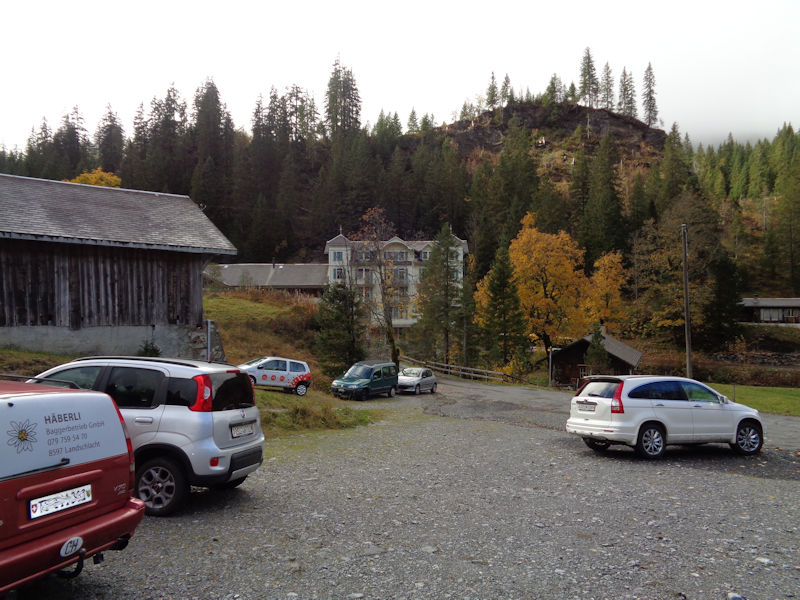
The venerable Hotel Rosenlaui is tucked away along a tiny mountain road half an hour up from Meiringen on the river Aare, upstream from the Lake of Brienz, past Sherlock Holmes's Reichenbach Falls -- the road continues, narrower and narrower, up over the pass at Grosse Scheidegg and down to Grindelwald in front of the Eiger.
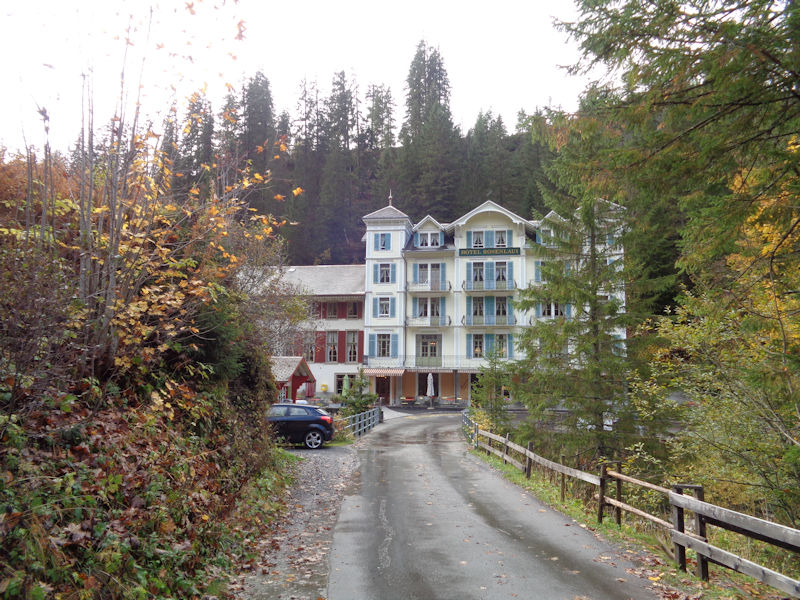
We first visited the Hotel Rosenlaui for several days in summer 2008, and at that time we provided this little touch of background: An inn was first built on this spot in 1795 to capitalize on mineral springs found here some years earlier; it burnt down in 1860 and was rebuilt in 1863. The berghotel seen here was built in the grand Victorian style in 1904, but the mineral springs have long since disappeared under a landslide. The 1863 building is still there alongside the main one and apparently serves as a youth hostel.

As the Rosenlaui website rightly notes, this is a welcome escape from the busy trappings of the 21st century, like WiFi in the rooms, or running water. (The respite from the Internet seems actually to be becoming more and more unwelcome year by year, but for only three nights this time . . . we can do it!)
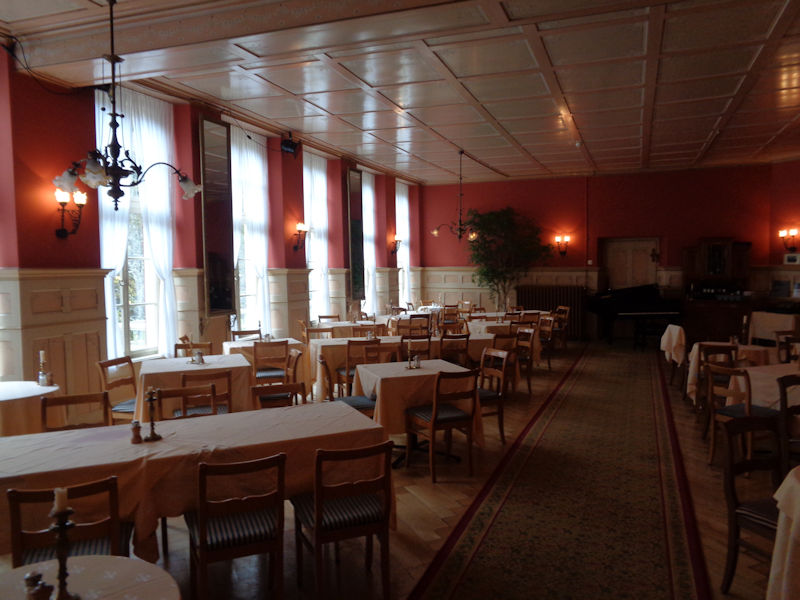
The diningroom, with pension style fixed menu, and on Tuesday nights a "soirée" with local entertainment.
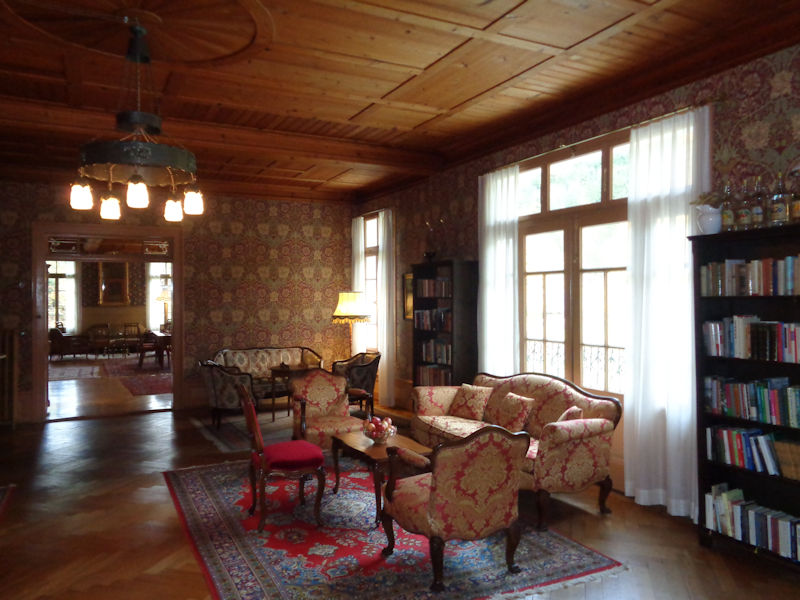
The salon. From our earlier background, The Kehrli family took over the inn in 1960, and the second generation of Kehrlis, Andreas and Christine, have carefully restored much of the Victorian grandeur that makes this berghotel probably unique.
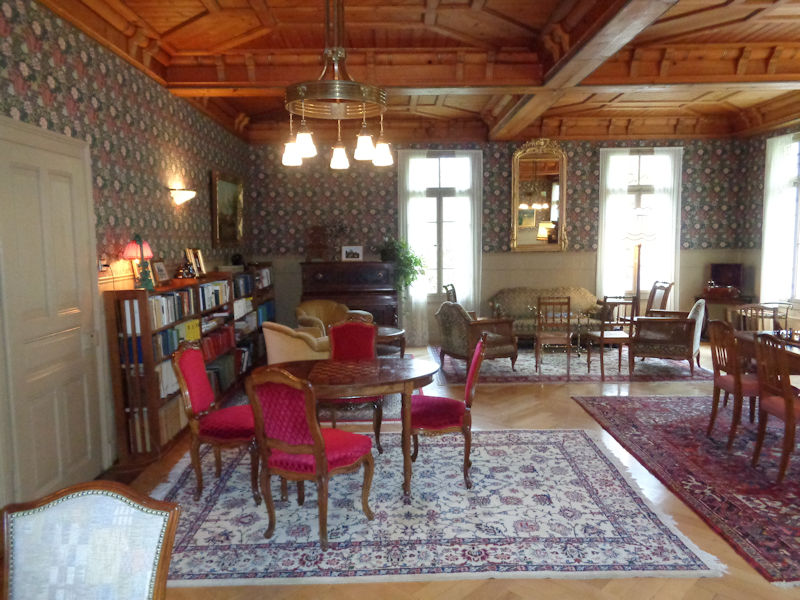
For some reason, photographs are now discouraged inside the hotel so these were snagged hastily when no one was looking, but there are much better ones from our 2008 visit.
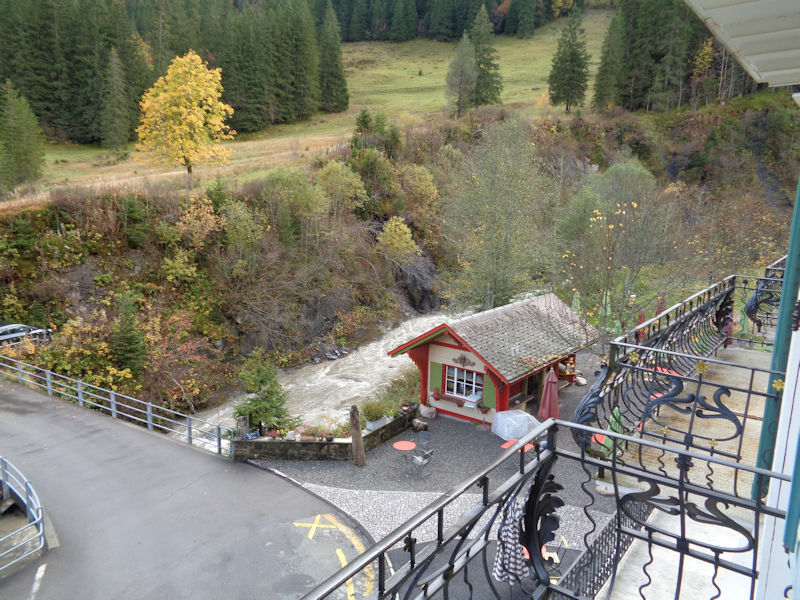
From our balcony, the Reichenbach torrent and the facilities for terrace snacks and drinks -- less crowded now in October but probably hopping in August.
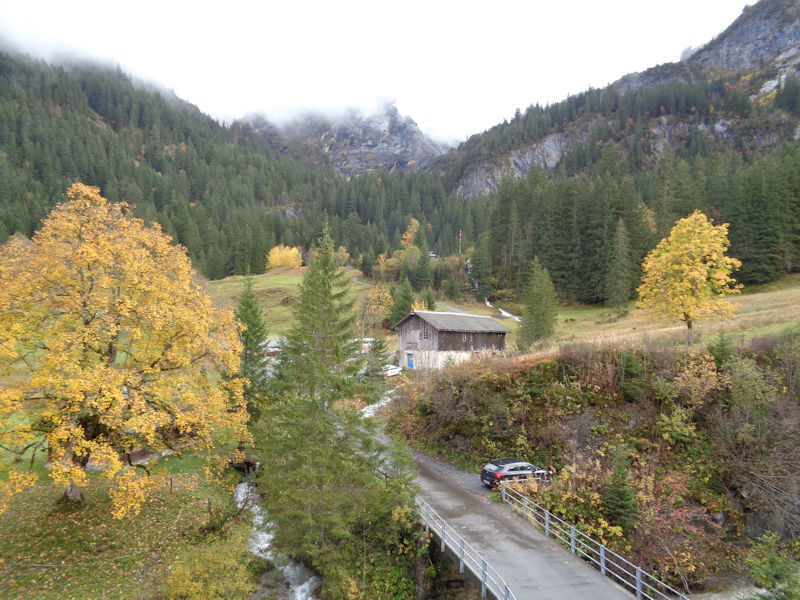
Across the way, the road up to Grosse Scheidegg. Just above the old building is the entrance and small restaurant of the stunning Rosenlaui Gletscherschlucht, or glacial gorge.
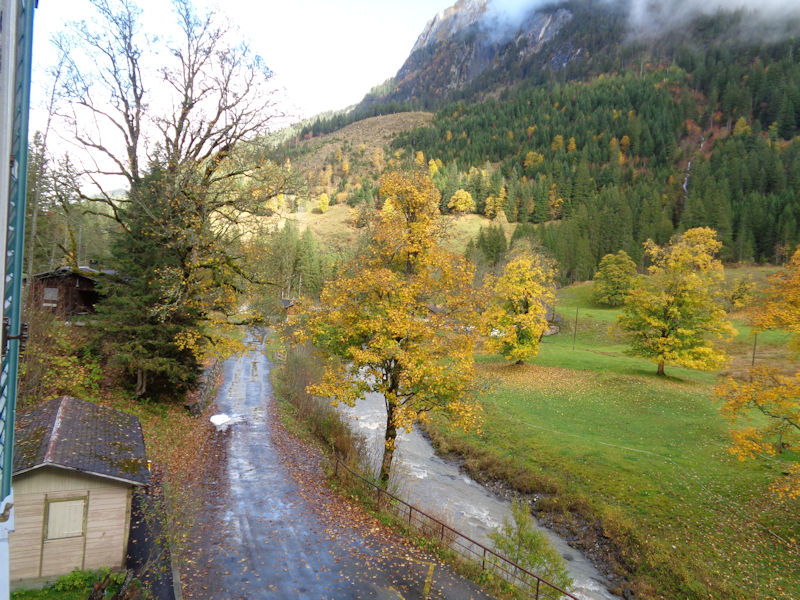
The Reichenbach river and the road down to Meiringen
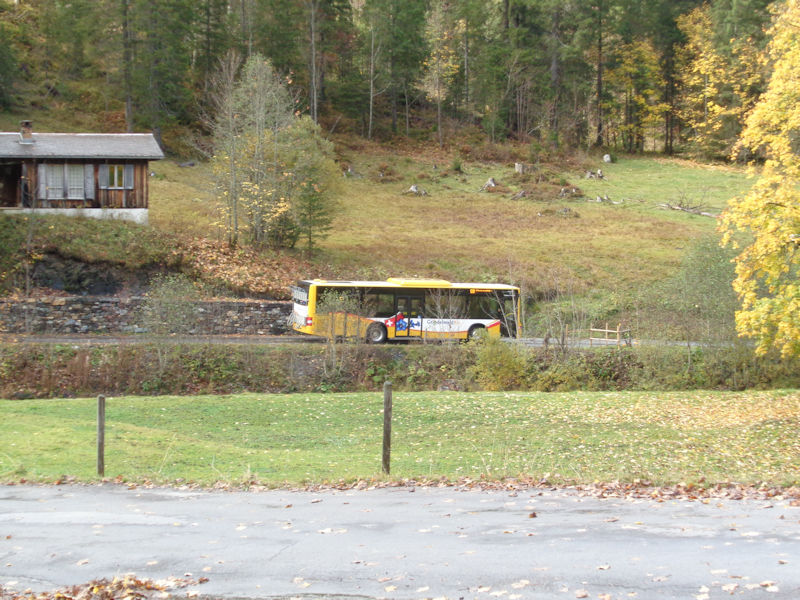
The postal bus down to Meiringen (we'll catch it on the uphill trajet tomorrow)
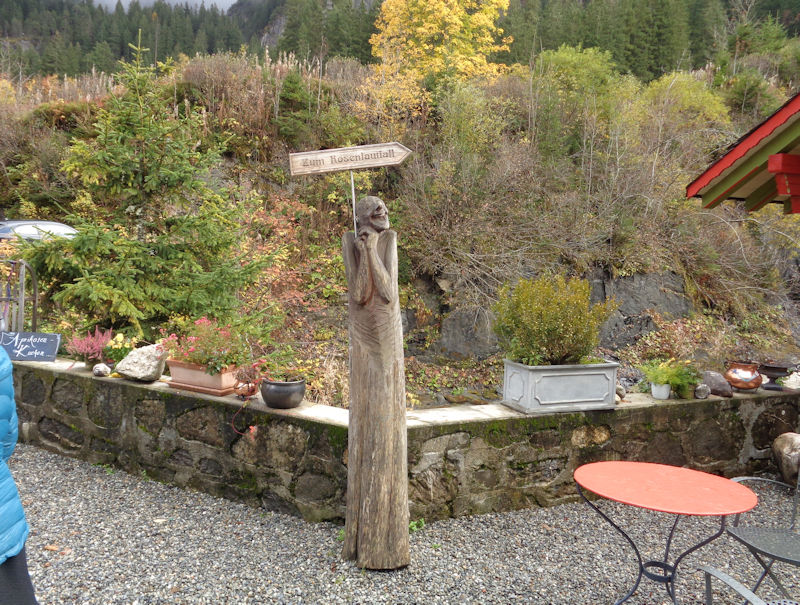
This way to the Rosenlaui Falls
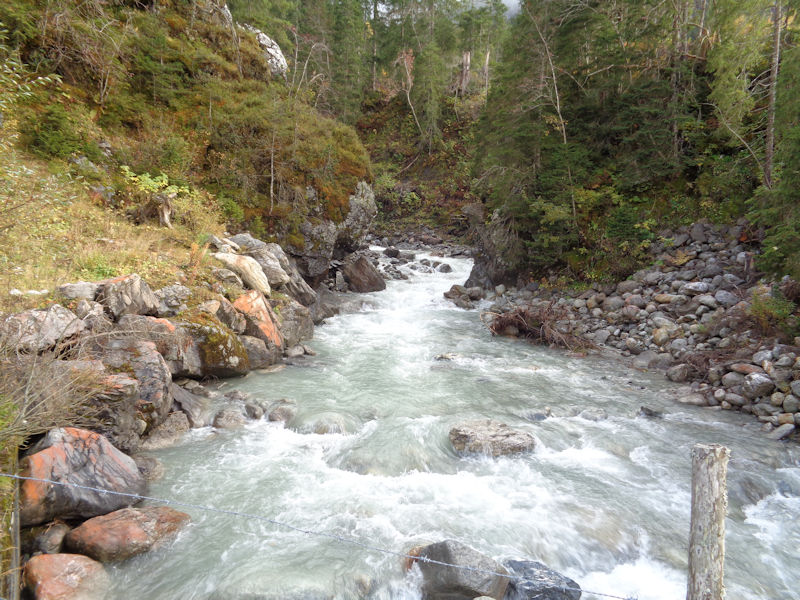
The Reichenbach or Rychenbach (your choice)
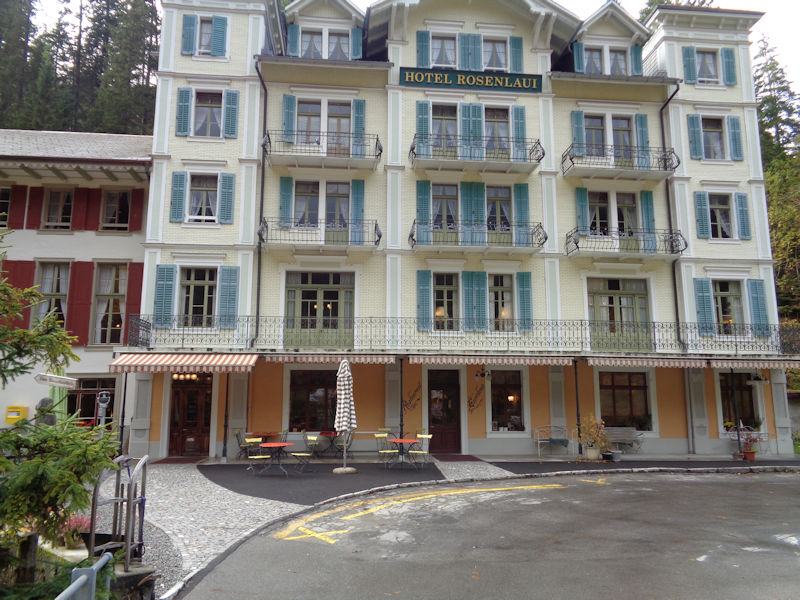
The Hotel Rosenlaui
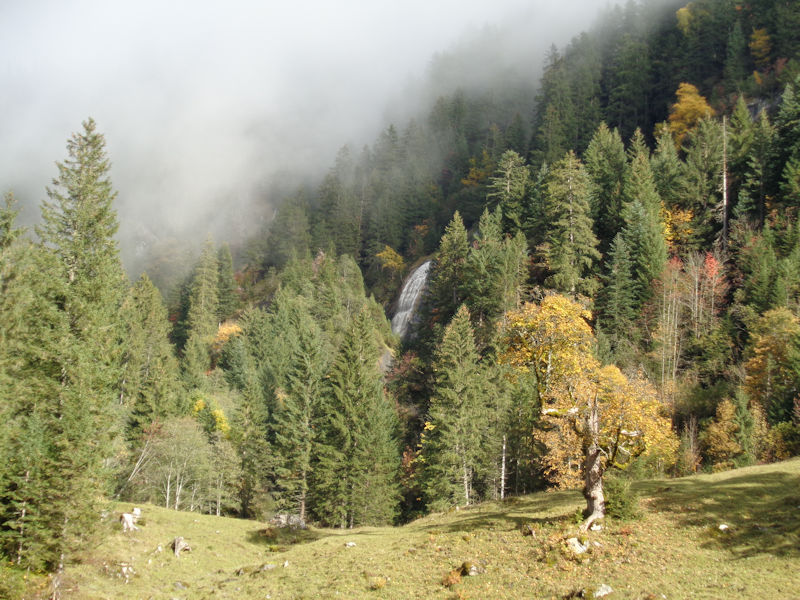
We're off for a short walk down along the Reichenbach before dinner.
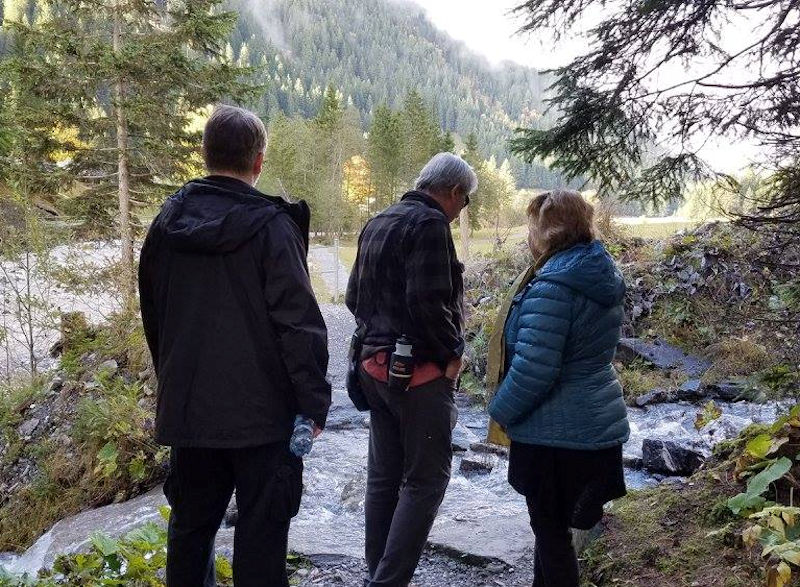
Preparing to ford or leap the rushing stream (photo by Alison)
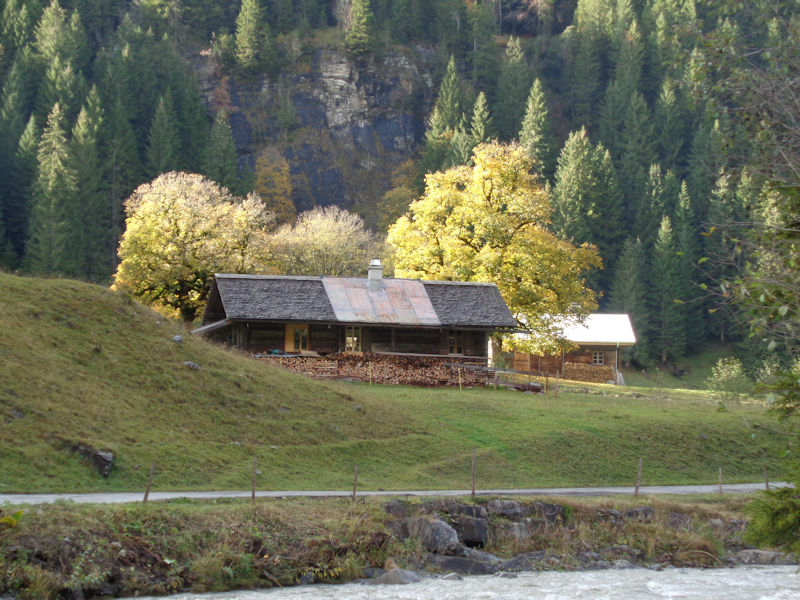
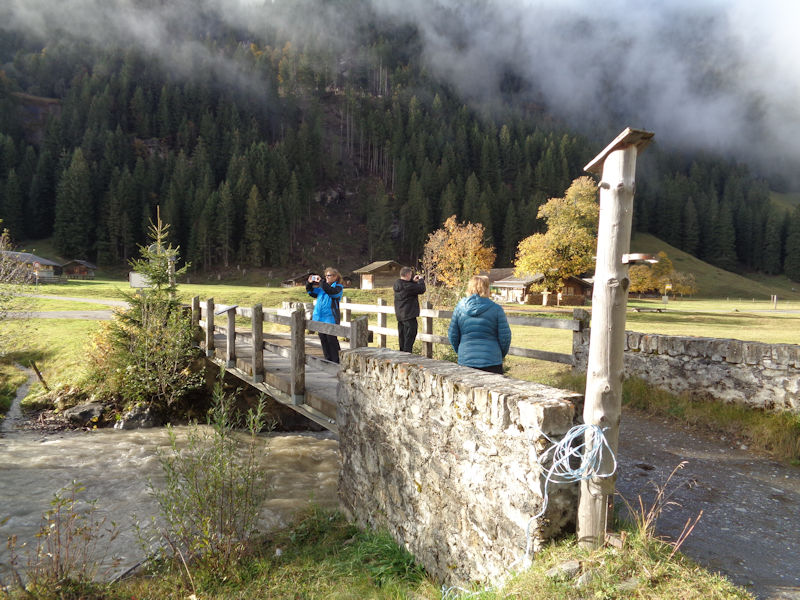
Photographs all round and thoughts of dinner (with, as it turned out, our "soirée" with local entertainment)
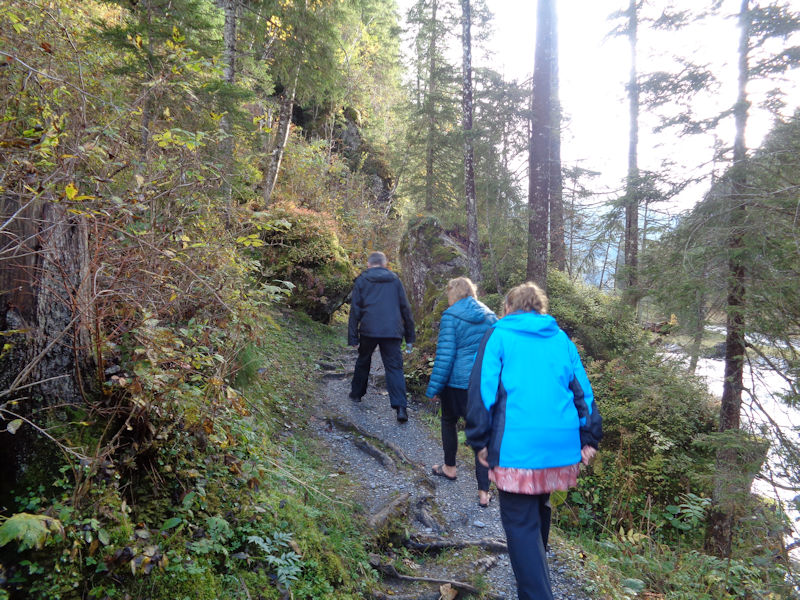
Mark, Kristin, and Alison in the lead
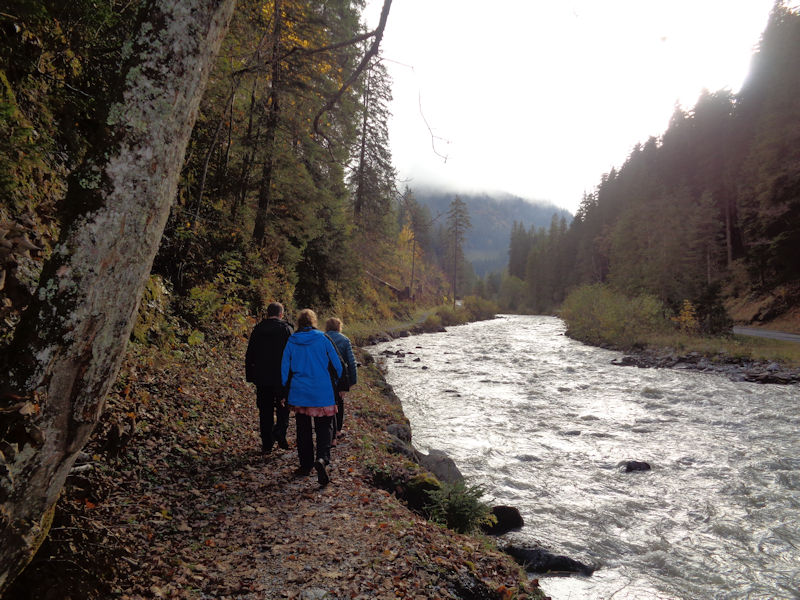

Self-service cheese sales -- help yourself in the fridge, drop the money in the box. Switzerland.
On offer: Hobelkäse, Alp-käse, Mutschli, and Milch-Gonfi, and also honey.
Tomorrow: The 'Romantikweg' hike above Rosenlaui



